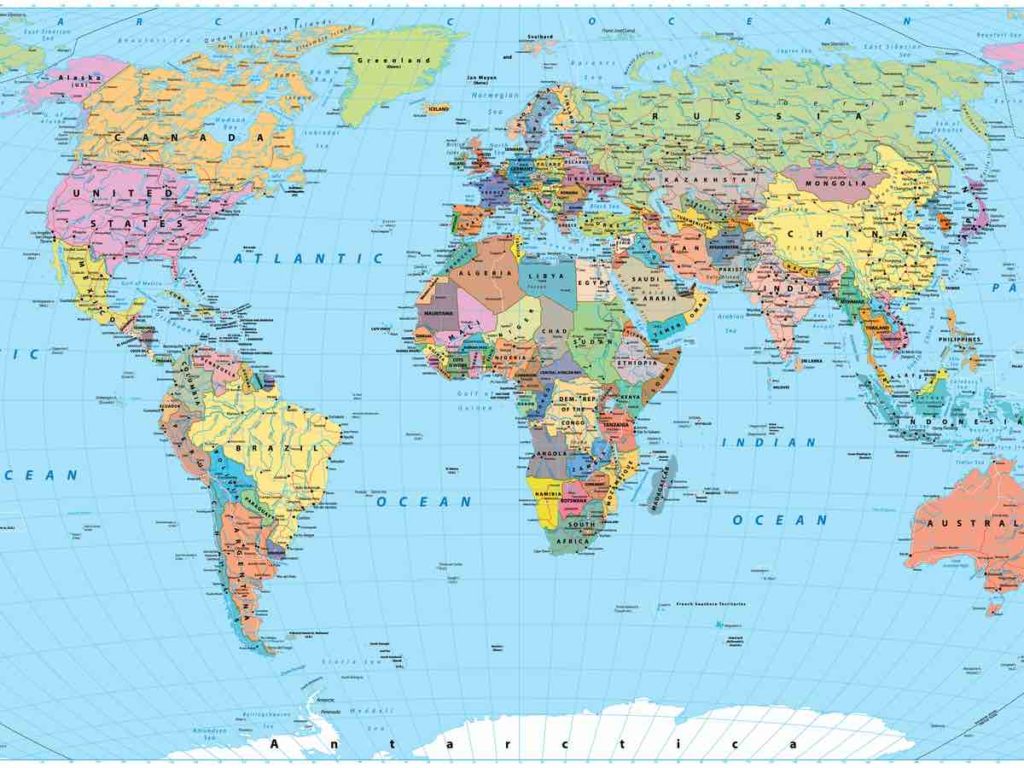Are American Degrees Valid in Other Countries?
You just earned an undergraduate degree from your top-choice school. And now you are thinking about flying overseas to enroll at a graduate school or get a job. However, you are wondering if your degree will still be worth something the moment you step foot outside the country.
American degrees are considered valid in many countries. This is especially true for the more than 50 member nations of the Commonwealth. Degrees earned from accredited colleges and universities in the US are accepted in various graduate schools and numerous work fields and industries abroad.
Planning to take your degree outside the US to earn a graduate degree or land a job? Read on.
In this post, you will learn which countries all over the globe are likely to accept your undergraduate degree as well as which degrees are considered the most in-demand internationally.

Countries That Accept Degrees Earned in the US
Simply put, various Commonwealth countries accept American degrees. Bachelor’s degree holders who wish to earn a master’s or doctoral degree abroad, however, may have to seek a credential evaluation service beforehand. Most international employers accept degrees obtained at US colleges and universities.
If you think that Commonwealth countries are only wealthy and highly developed nations, think again — commonwealth countries are so diverse that they are among the richest, poorest, biggest and smallest countries.
As of this writing, there are a total of 54 countries of the Commonwealth.
Planning to take your American degree abroad and worrying that it may not be accepted by school administrators or employers?
Here are the member countries to consider if you are planning to take your American degree outside the US, arranged according to the date of Commonwealth membership:
| COUNTRY | MEMBERSHIP DATE |
|---|---|
| United Kingdom | 1931 |
| Canada | 1931 |
| Australia | 1931 |
| New Zealand | 1931 |
| South Africa | 1931 — left in 1961 and rejoined in 1994 |
| India | 1947 |
| Pakistan | 1947 — left in 1972 and rejoined in 1989 |
| Sri Lanka | 1948 |
| Ghana | 1957 |
| Malaysia | 1957 |
| Nigeria | 1960 |
| Cyprus | 1961 |
| Sierra Leone | 1961 |
| Tanzania | 1961 |
| Jamaica | 1962 |
| Trinidad and Tobago | 1962 |
| Uganda | 1962 |
| Kenya | 1963 |
| Malawi | 1964 |
| Malta | 1964 |
| Zambia | 1964 |
| The Gambia | 1965 — left in 2013 and rejoined in 2018 |
| Singapore | 1965 |
| Guyana | 1966 |
| Botswana | 1966 |
| Lesotho | 1966 |
| Barbados | 1966 |
| Mauritius | 1968 |
| Nauru | 1968 — joined as a special member and became a full member in 1999 |
| Swaziland | 1968 |
| Tonga | 1970 |
| Samoa | 1970 |
| Fiji | 1971 — left in 1987 and rejoined in 1997 |
| Bangladesh | 1972 |
| The Bahamas | 1973 |
| Grenada | 1974 |
| Papua New Guinea | 1975 |
| Seychelles | 1976 |
| Solomon Islands | 1978 |
| Tuvalu | 1978 — joined as a special member and became a full member in 2000 |
| Dominica | 1978 |
| Kiribati | 1979 |
| Saint Lucia | 1979 |
| Saint Vincent and the Grenadines | 1979 — joined as a special member and became a full member since 1985 |
| Vanuatu | 1980 |
| Belize | 1981 |
| Antigua and Barbuda | 1981 |
| Maldives | 1982 — left in 2016 and rejoined in 2020 |
| Saint Kitts and Nevis | 1983 |
| Brunei | 1984 |
| Namibia | 1990 |
| Cameroon | 1995 |
| Mozambique | 1995 |
| Rwanda | 2009 |
But just because you are trying to get admitted into a university or get hired at a company in a Commonwealth nation doesn’t mean right away that things will go smoothly and your American degree will be accepted by a school or employer without any doubt or hesitation — it’s still very much possible for you to run into some obstacles.
It’s for this reason why, when building a college list as a graduating high schooler in the US, you should make sure that the institution is fully accredited by a recognized accrediting agency before shortlisting it.
Earned your degree from a recognized and accredited school in the US?
Still, you may have to take certain steps before it is accepted by a university or company abroad. This is true even if it’s a member country of the Commonwealth.
For instance, it’s possible for the academic institution to ask you to obtain a credential evaluation or an employer to require you to undergo qualification comparability service.
Having the right degree for an international graduate degree or work is not enough. Before you fly, make sure that you learn about the country’s culture, including especially studies- or work-life balance.
And don’t forget the legal side of things, too, such as taxes and visa conditions.
Read Also: How to Get Into Cambridge: A Guide for US Students
American Degrees Providing Lucrative Jobs Abroad
Some degrees earned in the US can pave the way for more lucrative jobs outside the country than others. It all depends on factors such as the labor force outlook and socioeconomic status and needs of a nation. The majority of the most in-demand degrees abroad are also the most employable ones in the US.
It is estimated that over eight million Americans are living and working abroad. If you are thinking about being a part of the statistics, having a degree earned in the US can make it easier for you to find a job internationally.
Here are some of the most in-demand degrees outside the country that you can earn locally:

Computer Science
In the digital age, it’s very rare for computer science degree holders to run out of jobs to apply for.
In the US alone, as a matter of fact, the US Bureau of Labor Statistics (BLS) says that employment for them is projected to grow 13% from 2020 to 2023, which is faster than the average growth projection for all occupations.
Majoring in the likes of data science, information science, analytics, statistics and cybersecurity can help increase your job market value outside the country dramatically.
Engineering
Refrain from assuming that engineering graduates are in-demand in developing countries only. If truth be told, the employment rate for engineering degree holders in fully developed nations is high, too.
And this is why being unemployed for months should be the least of your worries if you intend to work abroad after graduation.
Some of the most sought-after types of engineers in various parts of the planet are those with degrees in biomedical engineering, civil engineering, electrical engineering, environmental engineering, industrial engineering, geophysical engineering, mechanical engineering and petroleum engineering.
Banking and Finance
Services related to banking and finance are highly competitive and dynamic in modern economic systems, which is why a degree in it can make it easier for you to find a high-paying job in developed and even emerging nations.
People in the banking and finance services sector with access to some of the most in-demand and high-paying jobs overseas include risk management officers, finance analysts, accountants, accounting clerks, auditors and bookkeepers.
In the US, top-earning banking and finance degree holders make an average of $110,500 per year.
Related Article: Is a Minor in Management Worth It?
Nursing and Healthcare
In the US, according to BLS, the projected growth of healthcare occupations from 2020 to 2030 is 16% — that’s so much faster than what’s considered average for all occupations.
Since the healthcare industry is always growing in and outside the country, earning a degree in the healthcare field makes perfect sense.
Nursing degree holders are some of the most in-demand all over the globe. These days, thanks to a growing interest in holistic healing, degrees in ayurvedic or homeopathic medicine and surgery are highly employable, too.

Biotechnology
It is said that IT experts are some of the most handsomely paid professionals all over the world. It is also said that, these days, most biotechnologists are paid similarly — in the US, top-earners make more than $100,000 per year.
Besides the US, countries that are constantly in need of biotechnologists include Canada, Australia and Singapore.
One of the nicest things about being a biotechnology degree holder is that you can work in many different industries, from healthcare, pharmaceuticals, agriculture, food manufacturing to research.
Agricultural Science
Urbanization and health consciousness — these are two things that make people with a degree in agricultural science in-demand not only in the US but in many other countries, too.
Simply put, an agricultural science degree focuses on the future of food production, sustainable farming systems, soil sciences and other agricultural research aspects.
Planning on taking your future agricultural science expertise abroad? Then consider majoring in food science technology, horticulture, animal health technology, agricultural mechanization or agricultural public services.
Just Before You Fly Abroad With an American Degree
American degrees are considered valid in many Commonwealth countries. Whether the purpose is continuing education or applying for a job, your degree earned from a US college or university won’t go to waste.
Some non-Commonwealth countries may accept your degree, too.
But whether Commonwealth or otherwise, it’s possible that you may have to take some steps beforehand, such as getting your credentials evaluated or your qualifications verified.
So, before you plan to fly abroad to study or work there, make sure that you do your homework first.
Related Questions
Are international degrees accepted in the US?
Especially if the degree comes from an accredited college or university in a member country of the Commonwealth, chances are that an international degree will be accepted either by employers or academic institutions that open its doors to international students who wish to pursue graduate degrees.
Which countries are the cheapest to live and work in?
Generally speaking, countries that are not considered popular destinations by individuals who like to travel in style and comfort are some of the best for budget-conscious people who wish to live and work abroad. Some of them are Costa Rica, Peru, Mexico, China, Thailand, Vietnam and Poland.
Read Also: Most and Least Racially Diverse US Colleges and Universities
Disclaimer: The views and opinions expressed in this article are those of the authors and do not necessarily represent those of the College Reality Check.





